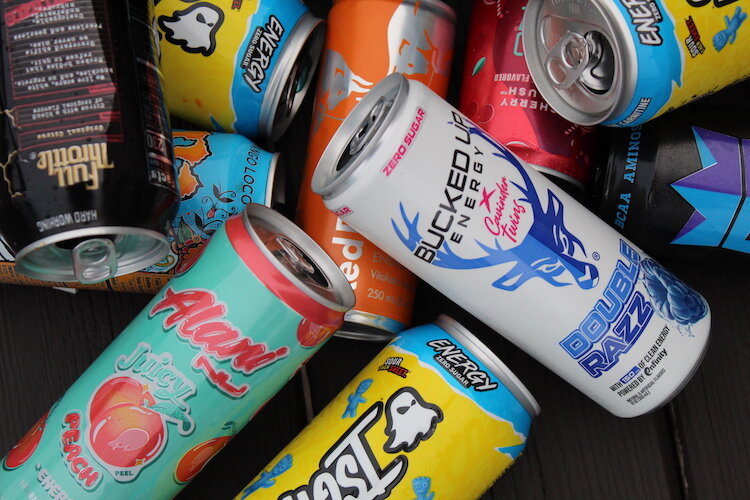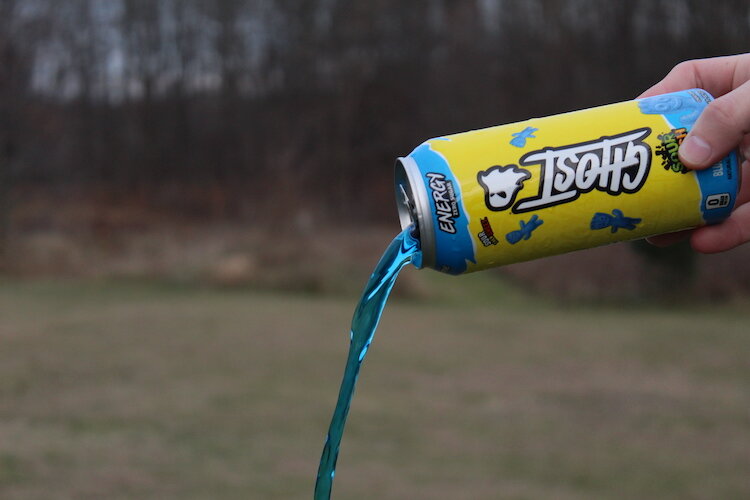Voices of Youth: Why do so many teens reach for energy drinks?
The Centers for Disease Control recommends adolescents avoid energy drinks due to risks of dehydration, heart complications, anxiety, and insomnia. Yet up to 40% of adolescents report consuming them. Why? VoY Writer Sophia Pell set to find out.
Getting your Trinity Audio player ready...
Editor’s Note: This story is part of Southwest Michigan Second Wave’s Voices of Youth Battle Creek program which is supported by the BINDA Foundation, City of Battle Creek, Battle Creek Community Foundation, and the W.K. Kellogg Foundation. Voices of Youth’s Sophia Pell both wrote and took photographs for this story. Her mentor was J.R. Reynolds.If you were to walk into the gas station by Olivet High School at 2:45 p.m., you would see a minimum of eight teenagers in line to checkout with an energy drink in their hands. Why is it the norm for high school students to buy an energy drink almost every day?
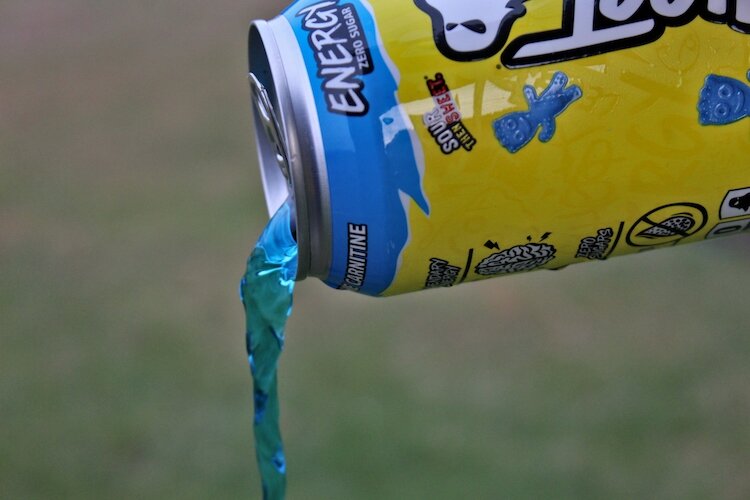
Most teenagers tend to agree that energy drinks are not good
According to a student-led survey conducted among Olivet High School students in 2023, 63 percent of teenagers drink energy drinks regularly. Almost 20 percent of the students who said they drink energy drinks also admitted they think energy drinks are bad for them, while 25 percent of students who reported not drinking energy drinks agreed that consuming them is bad for their health. Alicia Britton, a chemist for the State of Michigan, offered a list of reasons why so many people believe energy drinks are not healthy. Some of these reasons include high levels of caffeine, artificial flavorings, dyes, and sugars that can make your metabolism crash after consuming “Energy drinks can mess up your sleep, and give you anxiety-like symptoms,” Britton says.
Another issue associated with energy drinks is the cost. When asked how much he spends on energy drinks, Olivet sophomore Ethan Schaefer says, “Too much.”
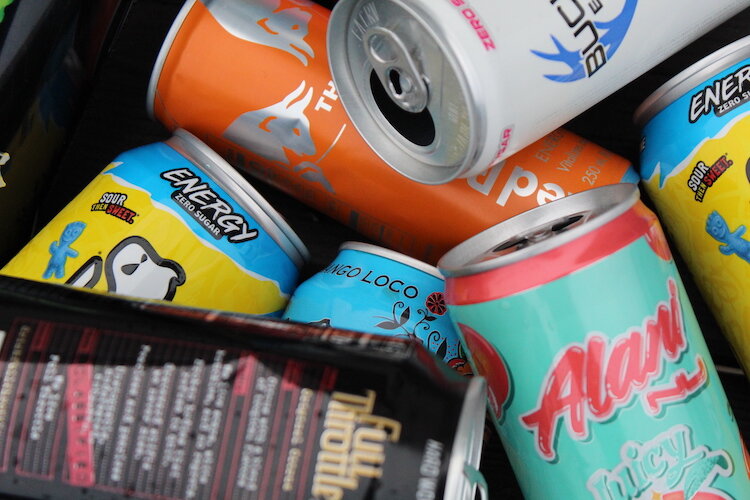
The average energy drink can cost anywhere between $1.40 and $4.00. For teenagers who may not have a job, the extra cost of these drinks can fall on parents. One Olivet parent was unhappy about constantly buying her child energy drinks because the costs started to add up.
Some teens who were interviewed stated that energy drinks don’t even energize them as they are intended to do, Ethan Schaefer explained that energy drinks make him tired, instead of the drink’s intended effect of energizing. Other Olivet students who took part in the survey reported similar experiences with energy drinks. According to the National Library of Medicine, caffeine tends to “calm down” and increase focus for people diagnosed with Attention Deficit Disorder. However, teens who have not been diagnosed with ADHD have also expressed that energy drinks have an unexpected calming effect.
Olivet educators have also weighed in on the energy drinks issue, “When I taught freshmen, the ones who drank energy drinks were very rowdy,” Abby Miller, an Olivet teacher, says. Other Olivet teachers have stated their dislike for students consuming energy drinks. Among them is Track, Basketball, Powerlifting Coach, and Geometry teacher Brian Lincoln who says that he would rather his students and athletes not drink them.
So why are energy drinks so popular among teenagers?
Perhaps the primary reason is in the name “Energy Drinks” itself. Teens are using these drinks to try and energize themselves. Olivet Junior Brianna Faulkner says, “I’m busy so I don’t have time to get a good amount of sleep because I’m up late studying. The only way to get through my day is energy drinks.” Almost a third of students who took part in the Olivet High School Energy Drink survey agree with Brianna.
Some teens say they consume energy drinks for the opposite reason. Gillian says, “I drink them because for me they calm me down, and help me focus in class.” Energy drinks only have this effect on a small number of teenagers, with just 2.6 percent of Olivet teens experiencing this energy drink effect, according to the survey.
Many students substitute energy drinks for beverages like water, coffee, or sports drinks such as Gatorade.
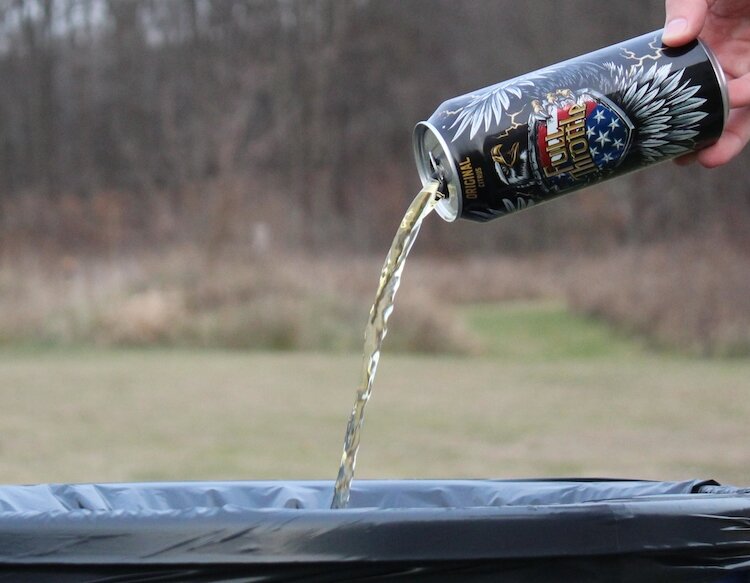
Other teens are just plain addicted. Britton says, “You can become addicted to caffeine; that makes it hard to stop drinking energy drinks.”
Not only can the caffeine in energy drinks be addictive, but the sweet taste can be as well. One Olivet senior reported only drinking energy drinks because they liked the taste. The most popular energy drink flavors at the school include strawberry and other berry flavors, orange/mango, and tropical punch. All of these flavors have one thing in common — they are very sweet. Teens love the sweet taste of fruity drinks, and the easiest ones that they can get their hands on are energy drinks.
What are some alternatives to energy drinks?
There are many different things that teens could be drinking or eating instead of energy drinks. The best alternative for each person depends on what they like about energy drinks. For teens who like the caffeine in energy drinks, coffee is another alternative. Plain coffee has caffeine, but it doesn’t have artificial flavorings, dyes, or added sugar. For the group of teens that drink energy drinks for the flavor, sports drinks like Gatorade and flavored water are options. These drinks have all of the fun flavorings that energy drinks have without the large amounts of caffeine.

Sophia Pell is an Olivet High School Junior. She runs track and plays volleyball. In her free time, she can normally be found reading or sneaking into local tracks with her teammates to get some extra practice in.
Pumpkin King is a 17-year-old nonbinary artist from Battle Creek, Michigan. He spends a lot of time drawing and playing video games with his friends, and hopes to improve as a person every day.

